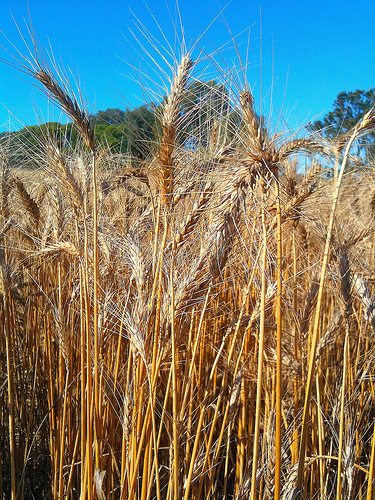

Economy
Climate change may slowdown crop yield, study finds
Climate change makes 20 times more likely for corn and wheat crop production to decrease, significantly affecting food prices and availability in the long-term, according to a new study.
Scientist from Stanford University and the National Center for Atmospheric Research (NCAR) have said in a new study that although a massive and severe crop production slowdown is unlikely, global warming increase the risk of losses by 20 times.
There is therefore a substantial risk of decreasing production of wheat and corn, which would not keep up with rising demand in the next 20 years, the study argues.
Stanford professor David Lobell said, “I’m often asked whether climate change will threaten food supply, as if it’s a simple yes or no answer.
“The truth is that over a 10- or 20-year period, it depends largely on how fast the Earth warms, and we can’t predict the pace of warming very precisely. So the best we can do is try to determine the odds.”
Using computer models of global climate, researchers found that climate change would negatively affect yields by 10% over the next two decades, causing side effects on food prices and supply considering that worldwide crop yield will have to increase because of growing population and demand for biofuels.
They suggest an increase of 1C would slow corn yields by 7% and wheat yields by 6%.
Co-author Claudia Tebaldi from the NCAR said, “We can’t predict whether a major slowdown in crop growth will actually happen, and the odds are still fairly low.
“But climate change has increased the odds to the point that organisations concerned with food security or global stability need to be aware of this risk.”
A separate previous study argued that by adopting sustainable an ecological agriculture practices, 3 billion more people could be fed.
Photo: mrpbps via flickr
Further reading:
Investment fund launched to support sustainable innovation in farming
Sustainable and ecological agriculture could feed 3bn more people
World needs to sustainably produce 70% more food by 2050
Feeding the world sustainably means investing in better solutions
Study: food of the future needs to be sustainable and healthy































